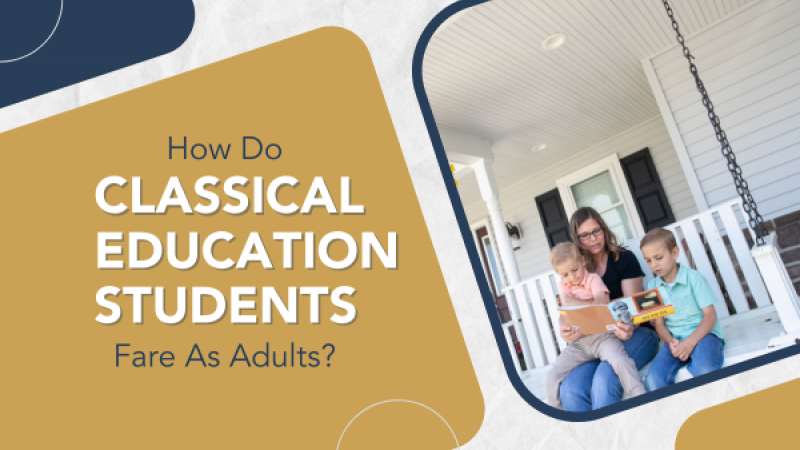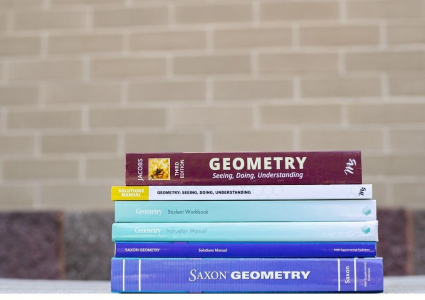How Do Classical Education Students Fare in Adulthood?

One of the greatest pleasures I have after 28 years of being a head of school is interacting with graduates of classical Christian schools. Many of what I see is positive, but the trends are not all positive. I was in the room when David Goodwin, the President of the Association of Classical Christian Schools (ACCS), received the initial raw data that became the “Good Soil Report.” This report compares the life outcomes of graduates of public schools, prep schools, Catholic schools, traditional Christian schools, homeschool students, and students of Classical Christian schools. The report offers a lot of encouragement for CCE students, whether homeschooled or brick-and-mortar. What is best, perhaps, is that this survey is not about current students but about what 24 to 42-year-old graduates of these educational models believe and how they live as adults.
My reflections in this post are just that—mine. Here are three positive characteristics that I see in the lives of many graduates of classical Christian schools and two negative trends we should address.
Positive 1: Thoroughgoing Biblical Convictions without Narrowness
When interacting with alums, I often see people who have chosen to follow Christ as adults. Sometimes, they have switched denominations. Often, they are deeper than they were in high school, but the Nicene Creed is the fairway of the historic Orthodox Christian Faith; I find many of them in the middle of the fairway. Even some of those in the rough or in the sandtraps during their college years have chipped into the fairway. I am encouraged by this.
In a deeper sense, I am even more encouraged by the kind of Christians they are becoming. I believe in all of the fundamentals of the Faith. I don’t call myself a Fundamentalist. I certainly would have donned that moniker during the Fundamentalist/Modernist Controversy. J. Gresham Machen believed all of the Fundamentals, but he believed much more. His faith was robust. He viewed education, philosophy, apologetics, and jay-walking laws from a Christian point of view. Sadly, the reason I don’t call myself a fundamentalist is that many currently embrace that description and have moved away from the robust faith of men like Machen and have instead narrowed the faith to a list of fundamentals and cultural practices. Graduates of classical Christian education might embrace the title “fundamentalist,” but when they do, I find them to be more like Machen than Billy Sunday. Whereas fundamentalists tend to wall themselves off from society, these young adults bring Christ into every calling and area of culture. Praise God!
Negative 1: Often Unready for the Emotional Pull of Postmodernism
If I could have a redo on any point for our early graduates, this would be it. The cultural eruption that exploded during COVID-19 brought the new morality of envy and resentment into the open that had been going on in college for many years. I don’t think that we gave our earliest graduates the kind of preparation they needed to be ready for the assault they were going to face. Thankfully, many good seeds were planted, and I have seen some initially knocked sideways, chipping back into the fairway or faith. Some made a shipwreck of their faith—or have so far. We sent some into battle without helping them understand the battlefield or the tactics. Like the French military of the 20th Century, we were constantly preparing to win the war we had just lost instead of preparing for the war that came next. Our graduates were not met with liberal theologians like Adolf von Harnack or Rudolf Bultmann but instead were faced with Ibram Kendi and Dylan Mulvaney. Lord, have mercy. Thankfully, it is an easy pivot, where discussions about these modern topics in classes like Omnibus can now prepare students well for the world and these important discussions.
Positive 2: Competence as a Superpower
The next encouraging characteristic of so many graduates of classical Christian programs is their competence. Who knew that simple competence could be a superpower? This educational quality and work ethic is garnering these young men and women's positions of responsibility influence. They are moving toward becoming the next generations of “lesser magistrates” in their businesses, church, and civil government. Perhaps they are arriving just in time. John Calvin called on lesser magistrates to protect people from wickedness in high places. The last section of the Institutes starts with the famous line, “Hear princes and tremble.” The trembling is coming because wicked leaders will face the prospect of many self-sacrificial leaders of businesses, congregations, and provinces that will stand against their leadership and protect godly people from overreach, mandates, and persecution.
You might see this superpower in summer jobs for your high schoolers, but seeing it in our graduates is particularly gratifying. We noticed this weird fact recently. Our students are given positions of responsibility during their summer jobs. Many are in charge of money at farmstands; others are named managers before the company allows people to be managers, and others handle problem customers even though they can’t legally drive. Why? They get these opportunities because they can do simple math in their heads, understand processes, and communicate clearly. When you see this with your 15-year-olds, you can say, “So far, so good.”
Last month, I had a graduate speaking with parents and grandparents. He was talking about the value of a classical Christian education. He went to a secular school and did an engineering degree. He was behind during the first year of engineering studies in college. Many of his fellow students at this selective school came from schools with much more lab equipment than any classical school or homeschool. He caught up with this “grammar” knowledge by the end of year 1, and that is when he discovered that he had skills that the rest of his classmates did not. He could problem-solve because of logic. He could communicate clearly because of rhetoric. The others did not catch up so easily. He got the best internship. He landed his “dream job” and quickly moved up in his company's organizational chart. Praise God.
Negative 2: Some Graduates are Too Passive
This is one of those problems that might result from parents being too invested in their children's lives. The kind of parent with the chutzpah to jump into classical Christian education might not always be the best at letting their children make mistakes and skin their knees. As the father of four daughters, I understand this. That said, we must encourage them to leave and cleave and that their gifts, given by God and nurtured by their parents and teachers, will be employed vigorously.
This is especially evident in some young men. Our culture hates men. Young men tend to understand this, but it leaves them few good outlets for masculinity. Schools and parents should consider areas where masculinity can earn applause, like football, boxing, or martial arts. Lord, have mercy.
Positive 3: Joyful Living
One aspect of living I see in so many graduates of classical Christian education is joy. This is the most hopeful aspect of these graduates. Joy eventually wins. These students have broad palates for joy. They love worship. They love things that are true, good, and beautiful. They love food…and therefore, I enjoy hanging out with them. They marry well and have children. What an encouragement! Praise God!
The first fruits are good. They are not perfect. We must keep working on the weak points and continue encouraging the strengths. Lord, have mercy. Praise God!






